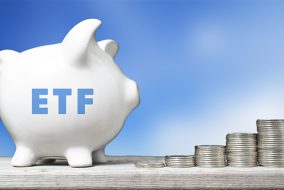As more and more Canadians strive to make socially responsible and sustainable decisions in their day-to-day lives, investment management companies have created investment products to meet this growing demand.
At the end of 2022, 43 fund companies offered 231 responsible investment (RI) mutual funds and 20 fund companies offered a total of 114 RI ETFs.1 In RI assets, there was a total of $34.5 billion in mutual funds and $10.2 billion in ETFs.
According to the 2023 Pollara Investor Survey, 20 per cent of mutual fund investors and 29 per cent of ETF investors own responsible investing funds. More than half of mutual fund and ETF investors who currently do not own RI funds say they are interested in owning them in the future. Also, most mutual fund and ETF investors who currently own RI funds say they are likely or very likely to increase these investments in the next few years.2
What is Responsible Investment?
Responsible investment is an investment approach that incorporates environmental, social and governance (ESG) factors into investment decision-making , in combination with traditional financial considerations.
Examples of RI Issues
There is a broad range of topics of interest within the area of RI. Below are just some examples in each of the three main categories.
| Environmental | Social | Governance | |||
|---|---|---|---|---|---|
| ✔ | Biodiversity | ✔ | Diversity, equity, and inclusion | ✔ | Executive compensation |
| ✔ | Climate change | ✔ | Human rights | ✔ | Anti-corruption |
| ✔ | Energy transition | ✔ | Modern slavery and labour rights | ✔ | Tax fairness |
| ✔ | Sustainable land use | ✔ | Supply chains | ✔ | Whistleblowing |
| ✔ | Water scarcity | ✔ | Weapons manufacturing | ||
Investor Objectives
There are three primary drivers or investment objectives for RI. In some cases, these objectives overlap. These include:
- Financial performance – Many investors believe that integrating ESG/RI factors in decision-making can reduce financial risk and deliver better risk-adjusted returns.
- Aligning investments with personal values – Investors may want to avoid investing in companies that profit from the sales of weapons or the use of child labour, or those that contribute to climate change.
- Making a positive impact – In these cases, investors are looking to generate positive social and environmental outcomes alongside their financial returns. This might include companies involved in renewable energy technologies or have leading practices in terms of diversity and inclusion.
RI and Financial Performance
One of the most common questions people have about RI is whether these investments generate lower returns. There has been a lot of research in this area and the short answer is that the incorporation of ESG strategies into the investing process does not, overall, produce below market-rate returns3 4. Like any other investment strategy, performance will differ across investment products. It is also important to keep in mind that performance is only one consideration in aligning investment objectives with investment products.
RI Approaches
RI is composed of different strategies that are used in isolation or in combination by investment managers. Below are the approaches outlined by the Canadian Investment Funds Standards Committee:
- ESG integration and evaluation uses ESG criteria in the buying and selling of securities in a portfolio.
- ESG thematic investing identifies disruptive themes and seeks to invest in companies that stand to benefit from them such as clean technology, women in leadership, etc.
- ESG exclusions excludes specific sectors, industries, materials, or companies based on ESG criteria or other ethical considerations.
- Impact investing focuses on companies or projects that have measurable positive environment or social impact as well as the intent to generate a positive financial return.
- ESG-related engagement and stewardship activities relies on the fund’s position of ownership to influence the company to make decisions that increase the company’s positive impact on the ESG factors.
- ESG best in class (positive screening) invests in securities that meet ESG criteria including thresholds related to ESG performance or scoring.






















